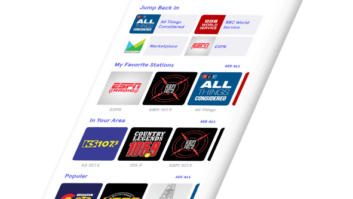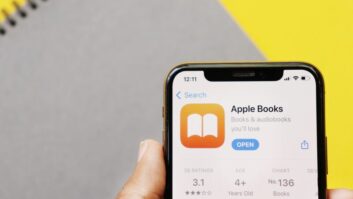NEW ORLEANS � Weather emergencies are times when the effectiveness of radio becomes readily apparent.� Looking at a recentblog entryfrom NextRadio, we see that use of the NextRadio app, which allows for FM reception onmany different mobile devices, spiked noticeably during the recent flood disasters in Louisiana.
The Tagstation blog writes:��…it�s no surprise that the number of session listening minutes in Louisiana spiked to 40.6 on Aug. 4, the day an EF-0 tornado tore through a New Orleans neighborhood. Severe flooding hit Louisiana the very next week.��NextRadio data shows changes in listening times during that period:
- Aug. 9 � �30 minutes (typical average)
- Aug. 10 � 31.1 minutes
- Aug. 11 � 34.8 minutes (serious flooding begins)
- Aug. 12 � 28.7 minutes
- Aug. 13 � 23 minutes
�Using NextRadio�s in-app analysis, we look at data across Louisiana, Mississippi, Alabama and Florida. We found that the average session listening time had increased 10.2% in August � 33.8 minutes as compared to the previous six-month average of 30 minutes.�
�
�Session listening time� is the amount of time a listener is �tuned� to a particular radio station before switching to another station or tuning out.
�
The blog entry continues: �Versus the six-month average, app users in the four states extended their session listening time by 8.4, 4.5 and 6 minutes Aug. 3-5. During this timeframe, the region was hit with severe thunderstorms, including tornados that touched down in Louisiana and Florida on Aug. 4. Listening time throughout the region rose 7.2, 7.7 and 4.9 minutes above average on August 10-12, correlating with severe flooding.�
�
Not surprisingly, power outages and a widespread AT&T cell outage across flooded regions of Louisiana created communications problems.� According to the blog, �New Emergency Alert System news sent directly to local cellphones stumbled a bit, too, when reports came that many people turned off the alerts to preserve their phone�s battery life.��
�
Chris Guilbeaux, deputy director of preparedness, response and interoperability for the Governor�s Office of Homeland Security and Emergency Preparedness in Louisiana warned of delays in alert messages to the public. �Guilbeaux cited problems such as internet and cellular telephone networks becoming overloaded with traffic or flood water damaging key cellular infrastructure sites, particularly in Baton Rouge.�
�
Many listeners will discover that radio stations continue to deliver news and information throughout a disaster.� This is the most important public service broadcasters provide, and radio station personnel, whether in programming or engineering, should endeavor to be ready to stay on the air and to serve the public to the extent they can, even through the most dire of circumstances. �
�












